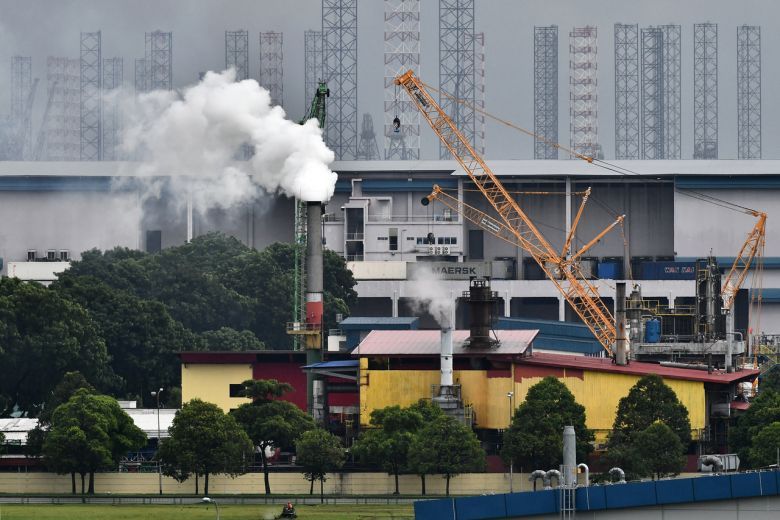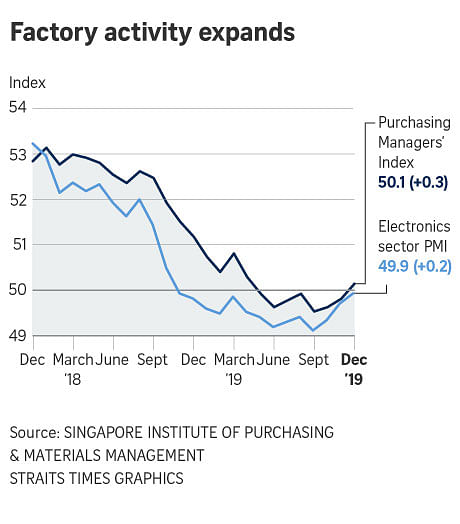Singapore manufacturing back in expansion mode after 7-month slump
Sign up now: Get ST's newsletters delivered to your inbox

Analysts said that the encouraging PMI readings suggest that the manufacturing sector has bottomed out and is on track for recovery this year.
PHOTO: ST FILE
SINGAPORE - A key gauge of Singapore's manufacturing sector signalled a long-awaited recovery amid the easing of trade tensions and a stabilising global economy.
The Singapore Purchasing Managers' Index (PMI) rose to 50.1 in December, its first reading above 50 since April, indicating an expansion in output after seven straight months of contraction.
The 0.3 point rise in the PMI was due to the first-time expansion of new orders, new exports and employment, as well as faster rates of growth in factory output and inventory, said the Singapore Institute of Purchasing and Materials Management (SIPMM), which compiles the index, in its release on Friday (Jan 3).
"The latest PMI reading bodes well for the manufacturing sector as companies will become less pessimistic about trade uncertainties going forward," said Ms Sophia Poh, SIPMM vice-president for industry engagement and development.
Analysts said that the encouraging PMI readings suggest that the manufacturing sector has bottomed out and is on track for recovery this year.
Maybank Kim Eng senior economist Chua Hak Bin said the improvement in December's PMI reinforces the view that the partial trade deal between the United States and China is helping to boost confidence in the industry, with capital expenditure going up as a consequence.
"Recovery (in the manufacturing sector) could be choppy, but as long as US-China talks do not break down and there are no re-escalation of trade tariffs, the manufacturing recovery should be sustained over the year," he said.
As part of a first phase US-China trade deal which will be signed on Jan 15, the the Trump administration will halve its 15 per cent tariff on about US$120 billion (S$161.7 billion) in Chinese goods. It also dropped plans to impose additional tariffs on US$160 billion of Chinese imports, including consumer items like smartphones and clothes. China, in return, will boost its imports of US goods by US$200 billion over two years.
Dr Chua noted that Singapore's PMI recovering into expansion territory is consistent with December factory activity in the region, with China and South Korea also seeing their first PMI readings above 50 since April last year.

China's official PMI for December came in at 50.2 while a private survey compiled by Markit and Caixin lodged at 51.5.
The leading indicators of Singapore PMI - new exports and new orders - have showed healthy improvement, which suggests that factory output is recovering nicely, said Dr Chua.
United Overseas Bank economist Barnabas Gan said: "The gains were likely led by the improving market sentiment surrounding Singapore's export and manufacturing environment."
He noted that the employment index rose to 50.1 in December after six consecutive months of contraction, which suggests positive hiring sentiment among manufacturing firms.
While the key electronics sector PMI entered its 14th straight month of contraction, it posted a reading of 49.9, a 0.2 point increase from the previous month that brought it to the edge of the 50 demarcation line.
It is also the highest reading the electronics sector has posted in 13 months.
SIPMM said that the improvement in electronics PMI was due to slower contraction in new orders, new exports and factory output, as well as faster expansion in inventory.


